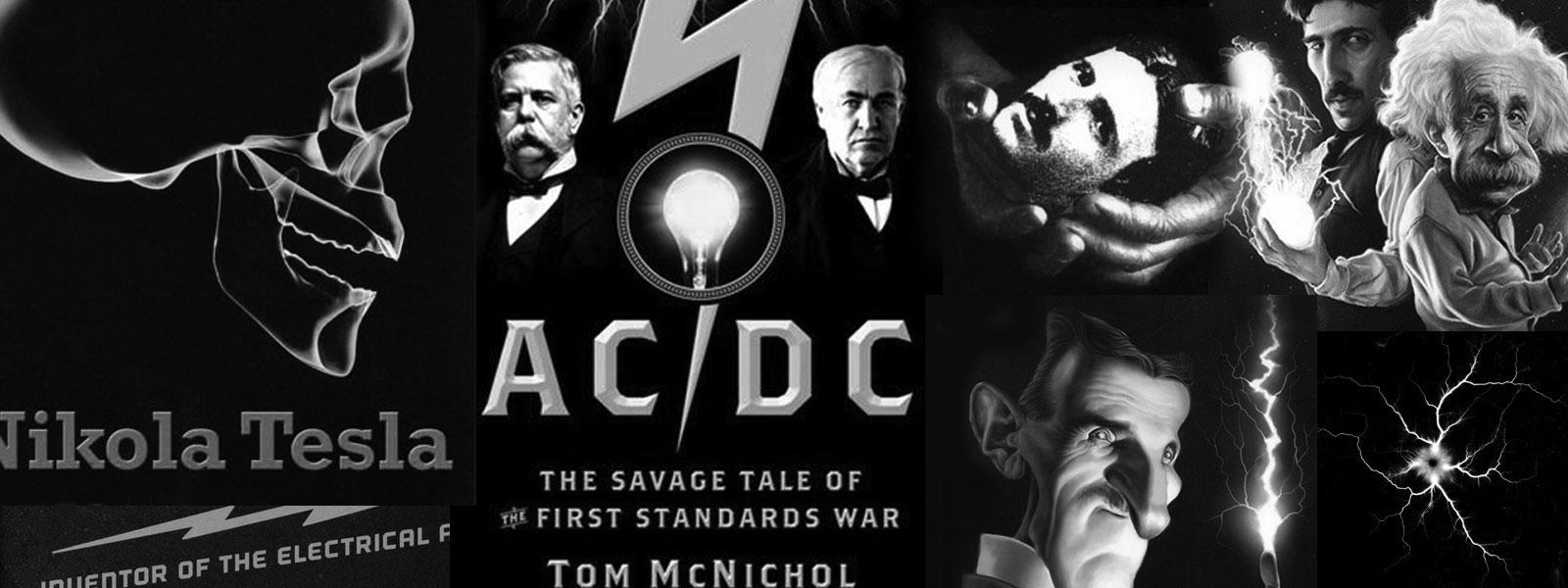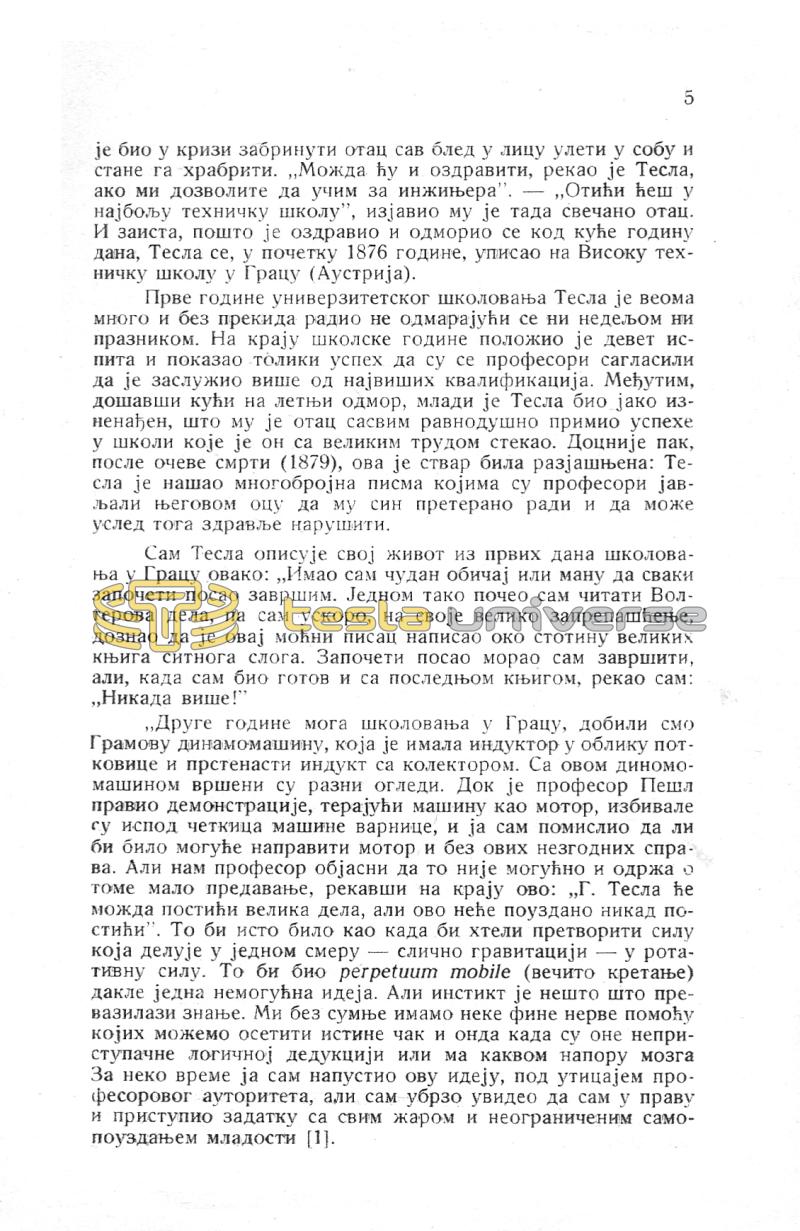
Nikola Tesla Books
was in crisis, the worried father, pale-faced, rushed into the room to console him. "Maybe I'll recover," Tesla said, "if you allow me to study engineering." "You will go to the best technical school," his father solemnly declared. Indeed, after recovering and resting at home for a year, Tesla enrolled in the High Technical School in Graz (Austria) at the beginning of 1876.
During the first year of university, Tesla worked tirelessly without breaks, even on Sundays and holidays. At the end of the school year, he passed nine exams and showed such success that professors agreed he deserved more than the highest qualifications. However, upon returning home for summer break, the young Tesla was surprised by his father's indifferent reaction to the academic achievements he had worked hard to attain. Later, after his father's death in 1879, Tesla discovered numerous letters from professors informing his father that his son was working excessively, which could adversely affect his health.
Tesla himself describes his life from the early days of schooling in Graz as follows: "I had a peculiar habit or mania to finish every task I started. Once, I began reading Voltaire's works, and soon, to my great astonishment, I found out that this powerful writer had written about a hundred large books of fine print. I had to finish what I started, but when I was done with the last book, I said, "Never again!"
"In the second year of my schooling in Graz, we received Gram's dynamo machine, which had an inductor in the form of a horseshoe and a ring-shaped induct with a collector. Various experiments were conducted with this dynamo machine. While Professor Pöschl was demonstrating, driving the machine like a motor, sparks were flying under the brushes of the machine, and I wondered if it would be possible to make a motor without these cumbersome contrivances. But the professor explained that it was not possible and gave a short lecture on the matter, concluding with this: "Mr. Tesla may accomplish great things, but this he will never achieve reliably." It would be like trying to convert a force acting in one direction - similar to gravity - into a rotational force. It would be perpetuum mobile, thus an impossible idea. But instinct is something that transcends knowledge. We have some fine nerves that allow us to sense truths even when they are inaccessible to logical deduction or any effort of the brain. For a while, I abandoned this idea under the influence of the professor's authoritative attitude, but soon realized that I was right and approached the task with all the ardor and unlimited self-confidence of youth [1].
